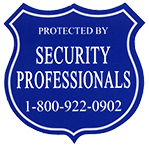Extinguishing Kitchen Fires
Fires have a greater chance of starting in your kitchen than anywhere else in your home. There are four kinds of fires:
Class A: Fires with trash, wood, paper or other combustible materials as the fuel source.
Class B: Fires with flammable or combustible liquids as the fuel source.
Class C: Fires involving electrical equipment.
Class D: Fires with certain ignitable metals as a fuel source.
Handling each one the right way will help keep the flames from spreading. For the best overall protection, purchase a multipurpose, dry-chemical extinguisher rated for Class A, B and C fires. Hang it in your kitchen, in an easily accessible place away from the stove.
In recent years I have had a couple kitchen fires I was responsible for. Once I turned on the wrong burner. It had a pot holder touching it, and before long it was on fire. That one was easy to handle. I removed the potholder from the heat and it went out, then I put it in the sink and soaked it. The other started because there was grease of some kind under my burner and drip pan. It started smoking and before long it was in flames. This one was more difficult; I turned off the heat, but because of where it was it was not easy to get to. I tried a lid and that helped, but it didn’t cover the edges. The lid eventually put it out because it cooled and didn’t get enough oxygen to survive. In other words I got lucky.
Things to think about:
- Make sure your stove top drip pans and the under area are clean before cooking. Make sure the kids know the importance of this as well
- Don’t walk away from the stove when you’re using it. Fires start quick and burn hot and fast. Things can get out of control quickly.
- Train your kids how to cook. Instruct them in putting out a small fire and that they are more important than possessions. Decide ahead of time where to go to call 911, one less decision they will need to make in an emergency.
- Even if you don’t think you’ll need the lid to whatever you are cooking with, have it handy. If it’s fitted all the better to smother a fire
- Keep potholders and towels away form the stove top.
- Consider getting monitored smoke detectors. When they go off the fire department is dispatched immediately, weather your home or not. Then you’re notified.
Things you’ll want handy when cooking:
- Baking Soda (lots of it)
- Pan Lid
- ABC-rated Fire Extinguisher
Need to know info:
- Do Not be afraid to leave, you and your family are more important then property. If you are not comfortable putting out a fire or feel threatened leave; go to a neighbors house or use your mobile phone if you have one (remember when using a mobile they can not get your address, you will have to give it to them. Include your state if you are in a border town, your call may be going to a cell tower in the other state) and call 911 and report the fire immediately, be sure to have everyone evacuate the house with you.
- Know that if you do have to use your extinguisher it’s a one-time-deal, so use the whole thing. You will need to get a new one when you’re done.
- If the fire is large or spreading fast, evacuate the residence immediately, and then call 911 to report the fire.
- For fires on wood, paper and cloth, use water or a Class A or ABC fire extinguisher to douse the flames. Place small objects in the sink to help contain the fire.
- If fat or grease in a pan starts burning, quickly slide a lid over the pan to cover it completely and cut off the oxygen supply. Turn off the heat.
- For small grease fires, throw baking soda over the flames or use a Class B or ABC fire extinguisher.
- For electrical fires, throw baking soda over the flames or use a Class C fire extinguisher.
- If you have a fire in your oven, close the oven door and turn off the heat to smother the flames.
- In general, try to put out a fire if it’s small. But if the flames begin spreading, do not remain in the kitchen.
- To prevent future fires, always keep your stove, oven and hood clean, and avoid overloading outlets or circuits with too many appliances.
- If your clothing is on fire, stop drop & roll.
When you have an appliance that is on fire unplug it. - When grilling make sure you have the grill a safe distance from the house and the extinguisher handy.
